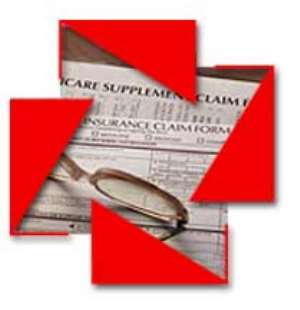
The National Health Insurance Scheme (NHIS), which is yet to cover the entire nation as a replacement to the "Cash and Carry" system is gradually taking off in most districts of the country.
The scheme the brainchild of the current government envisaged to bring much relief and comfort to every Ghanaian cannot be executed without first considering the basic and fundamental problems that can easily affect the progress of the scheme.
NHIS like any other national policy needs to enjoy a lot of educational programmes to enable beneficiaries to understand all the advantages and disadvantages if there are any in order not to leave them the lurch.
It is important for communities and every individual to know who are to pay the premium and those to benefit freely, how the concept could be beneficial to them and why as many people as possible should join the scheme.
Communities and their inhabitants also need to be told in clear terms that the NHIS was not like ordinary "Susu" where contributors would have to reclaim their money after some time of contributing to the scheme.
Again, NHIS is not a welfare fund from which contributors could borrow money for their businesses or to meet other social needs. Contributors should be told in clear terms that it was only after contributing for the whole year that, they were qualified to benefit from the scheme and not some months and that they would have to contribute every year.
They also need to be told that in situations when they do not fall sick, they should not think of going to take back their money. The educational programmes prepared by health teams, NHIS staff should give the communities examples of where the scheme had worked successfully in order not to keep them in suspense, and in darkness on the scheme they do not have any knowledge of.
The NHIS educational programmes should not also put too much pressure on community members to pay their premium but to use persuasive language that would encourage them to contribute willingly as putting pressure on them could discourage them.
The educators should use persuasive language that takes care of the sensibilities of communities.
Most people in the rural areas are very poor and, therefore, cannot pay the minimum of 72,000 cedis at a go so they should be considered for different friendly and comfortable terms that would enable them to be part of the scheme.
Health educators should also avoid condemning the culture and beliefs of communities during their educational programmes. They should rather appeal to them to embrace the scheme by persuading them to know that it was a better alternative.
Educators on NHIS should also avoid taking gifts and favours from the community members as that could also discourage them from fully participating in the scheme.
Such gifts and favours may be misconstrued as extortion and abuse of public office if care were not taken.
Giving of gifts to community members could also serve as a disincentive as other people with different programmes might not be given a hearing if they did not attach gifts and other financial enticements.
All said and done, the educators need to collaborate effectively with health workers in the communities to have the full background knowledge of the people so as to adopt appropriate measures for them. 24 Aug. 05




 Ghana will make maiden voyage into space should Bawumia become President — Chair...
Ghana will make maiden voyage into space should Bawumia become President — Chair...
 Train crash: Despite the sabotage, we shall not be deterred and will persevere —...
Train crash: Despite the sabotage, we shall not be deterred and will persevere —...
 Tema-Mpakadan railway project a perversion of the original viable concept design...
Tema-Mpakadan railway project a perversion of the original viable concept design...
 Train crash: Elsewhere, everyone involved in the test will either be fired or re...
Train crash: Elsewhere, everyone involved in the test will either be fired or re...
 Ghana, other election bound-countries must build fiscal buffers – IMF admonishes
Ghana, other election bound-countries must build fiscal buffers – IMF admonishes
 Parliament reconvenes late May, denies Speaker Bagbin delaying recall over NDC t...
Parliament reconvenes late May, denies Speaker Bagbin delaying recall over NDC t...
 $100m needed to revitalise Ghana's poultry sector — GNAPF
$100m needed to revitalise Ghana's poultry sector — GNAPF
 Driver arrested for causing train collision on Tema-Mpakadan Railway Line
Driver arrested for causing train collision on Tema-Mpakadan Railway Line
 Police grab trucker for Tema-Mpakadan rail accident
Police grab trucker for Tema-Mpakadan rail accident
 Gov't plans to revise traditional customs following Gborbu child marriage
Gov't plans to revise traditional customs following Gborbu child marriage
